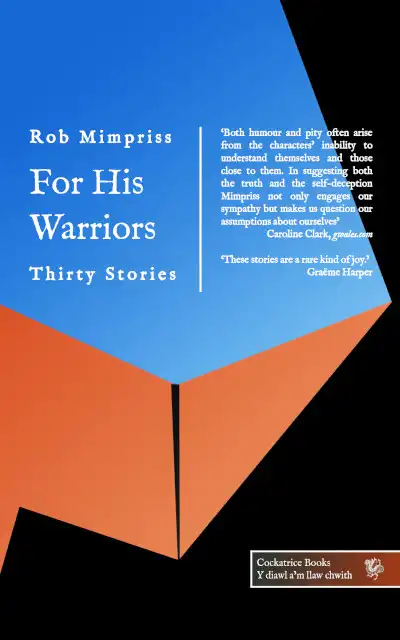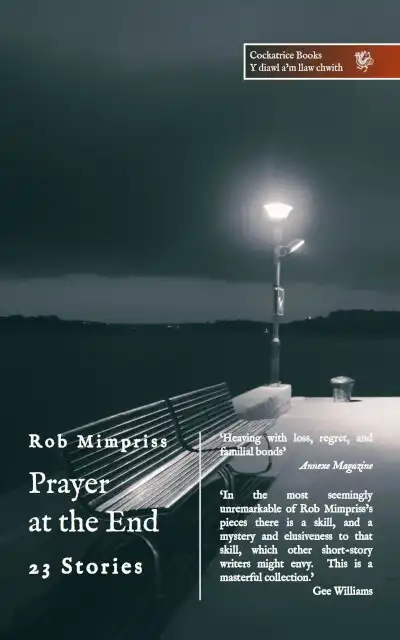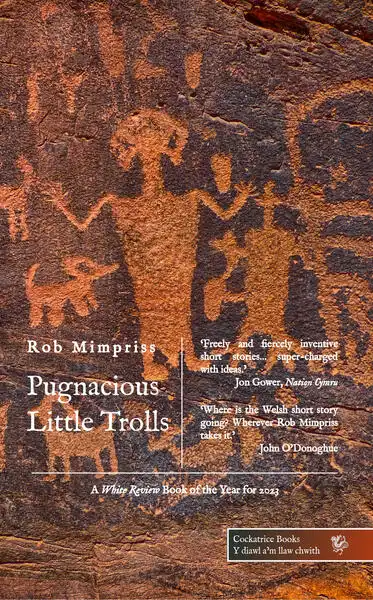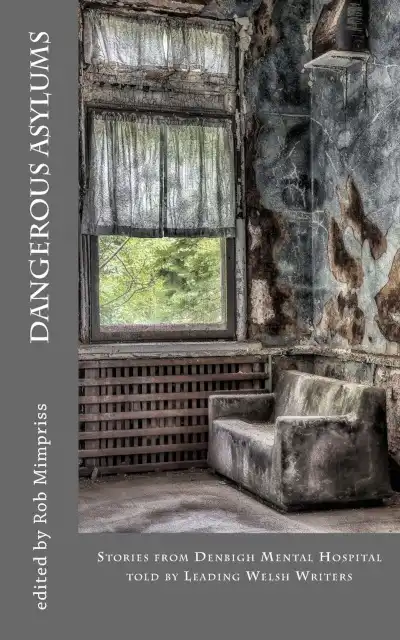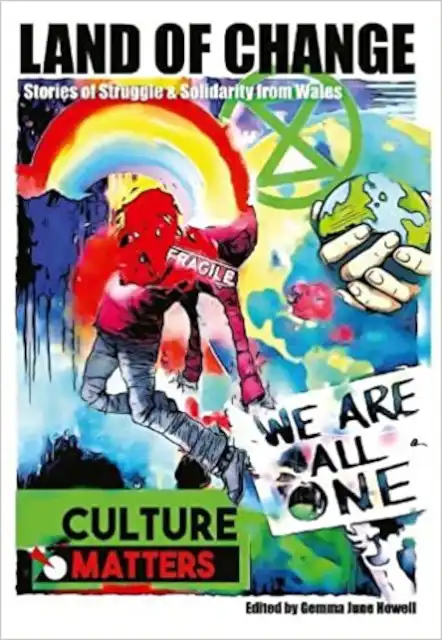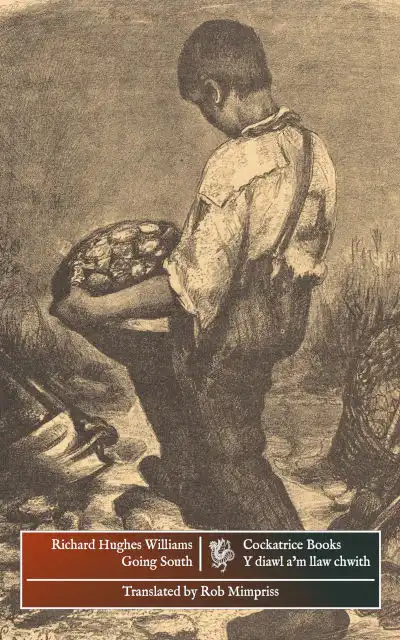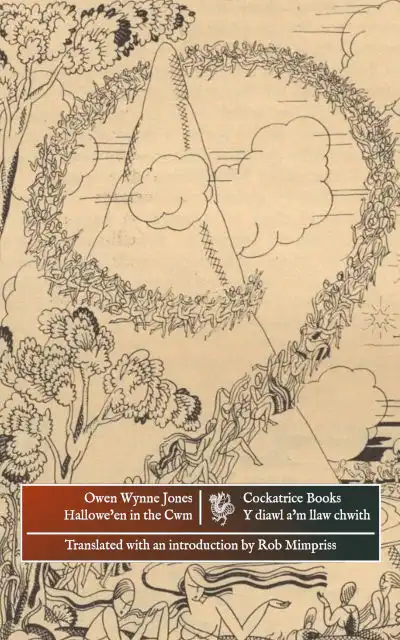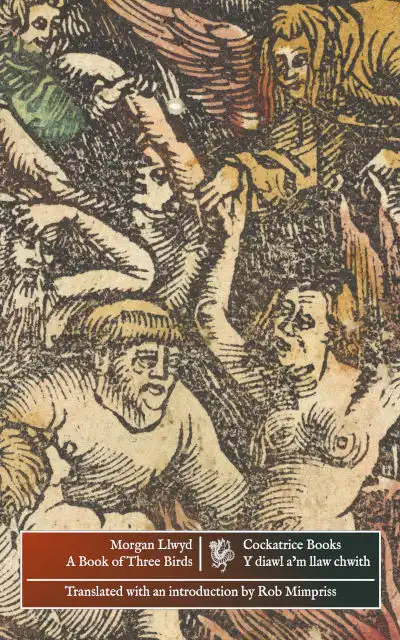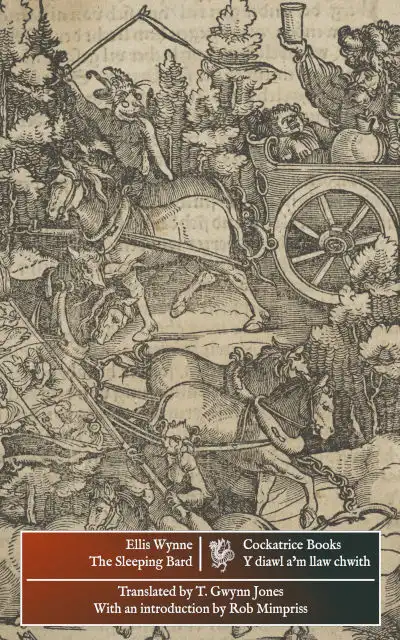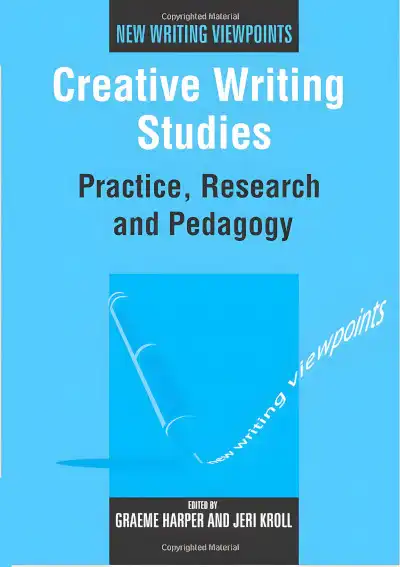San Marco Clock, Venice © Vladimir Ovchinnikov
Morgan Llwyd (1619-1659), the nephew of a professional soldier and magician, was a Roundhead, a millenialist, a chaplain in the army of Oliver Cromwell, and later a civil servant of the commonwealth in Wales.
His famous religious allegory, A Book of Three Birds, is considered the most important Welsh book of the Seventeenth Century, and an enduring masterpiece of Welsh prose. Morgan Llwyd wrote three other Welsh-language tracts, of which ‘A Guide for the Welsh,’ published in 1655, is translated here.
Oh, gentle Welsh: many are complaining that there are so many opinions and crossroads that lead from the paths of life to the cromlechs of death, that no one dares to advance ahead. But for your guidance, here us a word of the history of the Lamb, and a history of the soul, and a history of the lamb and the soul together. It will be revealed to you first, where you have come from, and where you are going, how there came to be conflict within you and between men, and how all are split between two opinions, as between two eternal fundamental minds; what way is the path of rebirth in Christ. I will reason with you, so that you may reason with yourself, for if you know yourself, you will know God and the Lamb also, at one with you.
You have an inheritance of three parts, namely spirit and soul and body. Your spirit came from the Father like reason from the mind, like a word from the heart, like a spark from the blaze, like a spring from the sea, or like breath from the lips, which was blown into the body of man from the breast of God, who dwells in the palace named eternity. Your soul also is the natural spirit created from the invisible elements, in the manner of lumps of clay, in which it lodges. Therefore this soul gives form to the body, and fashions it as it sees fit, to stay in its fleshly summerhouse for a time. And again, the soul is a knot between the spirit and the body, and when it wears out through illnesses, or other means, the spirit emerges from the body within, like a man setting out from home. For the spirit of lives (as Moses says) was breathed into man, and not one spirit of life only, as you have read. In a man one thing exists within another, just as in one tree there is the living sap, the heart wood, and the bark. Therefore, I say, the body is merely the bark of the tree, or the crust of the man, or a leaf to fall to the ground under foot. And just as the earth is like a pit, with open jaws to swallow the body whole (the fair and the ugly alike), so hell gapes to consume every fleshly soul. And that is a mystery.
This was written to you at length to be a messenger within, and to dig your ear deeper. He who reads, may he understand; he who understands, may he follow what he knows within, and he will have the light of the sun in place of the light of the moon and stars in his heart. But let him not forget this, that there is a spirit in him, that once was in the bosom of God, and will remain for as long as God and any least thing abides, which is forever. Where were you, says God, when I laid the foundations of this great earth? Answer, if you are a man of learning.
The one who has been born again has learnt a reply. I was in your loins, Lord, like a child, or like a branch in the root. For God is the father of spirits, and the Lord God is the spirit of all flesh.
Although a man knows that he was a sinner months before he came into the world, he cannot tell what was his dwelling place a few years before his birth. Nature is only the shadow of its creator. And a few have discerned this through the eternal light, how he was formed in the womb of his mother, and why. For the spirit of God searches the depths of the things of God and man, and if a man learns this, through it he can see more than the harpist of Israel saw, who (in his time) said, ‘I am fearfully and wonderfully made.’
Everything is from God, and what has come will return, says Solomon, either to wrath or to eternal love.
But, you say, did no one come out of him in his wrath? The answer is, although the greater number came out of the eternal nature in a fiery impulse, yet no one ever came out of God in wrath. For God is love, and there is no darkness in Him.
If you are thoughtful and spiritual, understand the difference. But the spirit of man can understand none of the things of God, and until he receives the spirit of God, he cannot know where he came from.
Oh soul, where are you going? You do not know, any more than a man on a journey knows where he will lodge, and what company he will meet. As they say in Wales, he knows what has passed, not what is to come. But as for the soul, it does not see where it came from, or where it will go. This much is clear: the flesh goes to the grave and the earth, and the breath is scattered; the body is tested in the furnace of the grave; the soul chases after the spirit (which is the heart of the tree), and the spirit goes forever to the nature it coveted most. The body is merely a tool in the hand of the heavenly spirit. The soul is only a breath of the most secret spirit. The spirit is the wheel within, which turns the soul and the body where it will, as it can. The body is like the clothing which covers a man, the soul is like the body which is clothed in dust, but the spirit is the heart of the creature.
A man runs fell pelt through this life, and those who meet him ask, Where are the soul and the spirit going? What does it benefit a man to dance and go down to the bottomless pit in a momentary pleasure? Will not God punish you for stealing your heart from Him? And do you think Eternity short, or the earthly life of a man long? Is it better for you to suffer the thunderbolts of righteous wrath forever, and the mockery of devils (for living in sin like them), or to suffer the jeering of men for a brief moment here? Is God not the best of lovers, and the worst of enemies? Why do you feed your flesh to the starvation of your soul, and indulge your soul, or your fleshly reason, to the destruction of your spirit? A fly in your way stops you from doing good, yet the Angel of God cannot keep you from sin. Has not Christ done all for you? And do you not find it in your heart to do anything for Him? The only son of God agreed to give His heart’s blood, (in which was his very life), and everything for you. Will you not suffer anything for His sake, or at least for the sake of your own soul? Will you let go of the spiritual gold from your hand, to fill your hand and mind with filth? Will you forfeit eternal life for the sake of a few fleeting nothings? What, do you say, is less than nothing? The whole present world is less than nothing, as Isaiah says, before God. And do you fear, or do you care for, a thing which is less than nothing? Do you love the world and its lusts, which altogether are less than nothing, as holy scripture says? (For the world and its lusts are passing away, and the lust of the world is the pleasant spirit of nature in which you live.) Why will you not see, while there is still time, what will become of you when this world is burnt and brought to nought?
Sit a little and wait in understanding, and reflect on your end before it comes. Is it better to sleep for a little while, and then awake in the eternal fire, or awake now, and come out of your self will, and escape the unquenchable fire? Why do you sit in the house of your self (away from your true home, which is God), in the dark chimney corner of your own thoughts, without enquiring about the living God, or about yourself or about anything else? Why do you still feed on the husks with the pigs, when there is plentiful bread awaiting you in the house of your Father?
Why do you run with the wild beasts, that is, with evil men, and turn away, refusing the company of the holy angels of God? Why do you wallow in the dung of the world and the flesh, and balk at the manna of life that will last forever? Why do you chase after the pleasures of popinjays and the reasons of devils, and despise the great voice of God, who will judge you when no one can speak for you? Has Lucifer, the hawk of this world, taken hold of you forever in his talons? Has the heavy chain of your self will bound your mind? Is there no physician in Gilead, no conscience in your breast? Is there no one who can show you the way; are you even asking for it? What good does your book of service do you, when you have always loved the service of sin? The better way, if you were to seek it, would be to see your salvation in eternity. Where will be in a thousand years? Leave it to God, you say, yet God has left it to you, without willing the death of the sinner. That is a candle to you, dear soul, to comfort and to guide you.
But you say to me, after all this, I do not know which way I should take. There are as many opinions in this world as hairs on my head; if I knew the best road, I would follow it to the end, with Christ’s help: but one godly and learned man contradicts the other, and they all live well. But to reply, oh man: behold, you know more than you do, and there is more of God’s strength to act in you than you use. No man of himself has light or strength or will to do good, but a man in himself has more light and strength from God (who gives life to all things) than he uses. Use to the utmost the talent He gave you, and you will know the true, royal, heavenly road among all the other paths.
If you are faithful to God, and welcome Him into the vessel of your conscience within you, undertaking to keep God in your thoughts, He will lead you to the knowledge of Christ, and the history of the lamb and the soul together. This lamb is the light of men, and the life of the world. He was the endless delight of God before the beginning of the world. He was the Word who made all things in the beginning. He is the immeasurable column that upholds all things. In the fulness of time He was made flesh, and took on the nature of man. He suffered the deepest affliction for man. This is the one who was above everything, and fell below everything, so that He could ascend again in a nature above all, to be above every name, to fill all things. He is in every man as the Word of God, and is with all those who receive Him as king, who surrender their will to death on the cross, to live in the will of God. I say again what He tells us: If anyone wishes to do the will of my Father, he will know the teaching and be familiar with every good path.
Understand this also concerning the two Adams: the first tree that God planted in Paradise, and the second Adam, Christ Jesus, whom God planted in our flesh. The first Adam sinned (we were substantial in him, and sinned as much as he); therefore his unclean nature is passed down to from age to age at birth. And God would never account any of his sin to us, were it not that we were in him at the time, and sinned like Levi in Abraham, and he still sins in us. And had we not eaten the forbidden fruit in Adam, it would not have set our teeth on edge. In the same way we can understand the second Adam and the death of Christ. The second Adam suffered, and all those who are saved were in Him at the time, and to these He descends through the generation of the second birth, and sends His holy spirit, which is the nature of God. And no one is justified, but those in Him who suffered with Him, in whom He lives for God. So that is your answer, poor soul who is asking the way. The only way to heaven is the second birth in the second Adam. Without this, there is not one man of understanding on the face of the earth. Have you not heard that there is not one man of learning under the sun? No, not one but Christ, the one who dwells in the hearts of His faithful saints. Do you not know what Isaiah said? Fools on an unfamiliar road would not go astray if they were willing for Christ to rule within them.
One must show as well why there are many roads to heaven among the children of Adam, and not one, and why men argue with each other like the brothers of Joseph going home to their father Jacob.
It is like this. Man (or Adam) was made at first in the image of his maker, the spirit in his form, the soul in his likeness, and the body from the dust. But Adam the root (and all of us within him, like branches in their roots) stumbled and fell, painfully and horribly, from the Rock of Ages to the bottomless pit. And in that fall he was divided in himself, like an earthenware dish that shatters when it is dropped. Will and conscience and reason and desire split apart within him, and turned against each other. In his body also the earth and the fire and the air and the water are seen to be in deadly conflict with each other (for before the fall, this conflict was covered over). And although these things fight in every one of Adam’s children (that is, in the body of every man), still the one cannot live without the others. And this is the root of physical disease, and the cause of physical death (for the other conflict is within). And just as the untamed sea separates one island from another, so does sin (and the princes of the air within it) separate a man from the union of God, while dividing a man within himself, so much that no man on earth can be have peace with himself, in his body, or his conscience, or his very mind; but his thoughts are at war, and each hurts the other, like the branches of the same tree battered by a storm. Therefore two are against three, and three are against two in the same soul, as much as in the same family.
At first there was only one language on the lips of men, but because the peoples boasted of their unity, it was shattered in pieces, so that the Welsh cannot understand each other better than others can, nor anyone make sense of what he himself tells his neighbour, much less what the heart says day and night. And though they send their children to degenerate schools, to gather some of the flowers of language, their primroses wither before they turn home to God or to themselves. Although they learn to play many strings on the harp of diverse natural languages, they drift further and further, instead of closer and closer, to playing the music that pleases God, for He does not care to hear one language more than another, but is pleased by the dialect of the Holy Spirit Himself in the depths of the heart.
At first there was only one religion in the breast of Adam, in the sacrifice of Abel, in the life of Enoch, in the ark of Noah, in the family of Abraham, and among the saved. But now we see, when the fog rises from the bottomless pit, that men are quick to chastise each other, when the most blame lies in their own flesh or soul. Some follow the Pope and his corruption, others the faith of their king, whatever that might be; some keep their festivals, others follow their fathers, wherever they are bound. Some sit at ease, and fester in the prison of darkness and perversity, many follow Mohammed, or Mammon, and the greater part go after that harsh prince Lucifer, and dance without care in the lusts of the flesh to the tune of his pipes. Yet they dream that they will go directly to heaven, and pray for a good hour, without asking for a good nature from God. In this way they deceive themselves, and battle against each other, bringing sorrow to the spirit of God, and making the devils laugh at their folly. But their time is short, for the great magistrate, namely the son of God, is at the door. And when He enters, and shows Himself to this world, He will place all the sheep together on the one hand, and all the goats on the other. And then all selfish disagreements will end, swallowed up in the same separation. Come, Lord Jesus, come quickly. Amen.
As for what I have written here, perhaps you will not understand it at first, but I implore you to avoid judgement without sense, lest you fall among those who revile what they do not know, and bark at what they do not understand. This much is clear, that no one is saved but through faith in Christ, and that no one has true faith, but the one who is reconciled to God, and that no one is reconciled to Him except the one who resembles Him, having been remade in the form and image of God Himself. If you resemble Christ, you are saved. And if you do not resemble Him, then you are still lost. True religion is to be like God in Christ. No one will go into heaven (no matter what their creed) but those who bore the image of God in the world. And no one will be cast into Hell, but those who were not like the Lord. God is Righteousness. And are you righteous in every thing, and upright in your ways? Or do you live falsely in hypocrisy and transgression, withholding from God and man their due? God is purity. And are you also holy and pure in your thoughts? The Lord is wisdom and light. And are you also wise and orderly in all your conduct? Then you are an image of God, and you will be with Him. The Father of the Lord Jesus is Love. And are you also loving and cheerful and gentle? He suffers and bears with us, and pays good for the evil of all. If you are not so, then you are not His child. His spirit is a meek and quiet spirit, but the children of the devil are restless and discontent. Christ is persevering and vigorous, ceaseless in his working, and puts every good thing in every place, neither sleeping nor dozing. And are you idle and negligent in every good work? Then you are one of the children of this world, and not of God. So then, see whose image you bear, and by this you will know where you are going forever. For the souls that are like God in every place are saved, and all the others are lost, no matter what their religion.
In truth there is a war within you between two natures, or between your sins and conscience. But look which of the two is your Lord, which rules within you, whether your corruption or the knowledge of God. Whichever one you obey, to that you are a servant, and according to your work will be your reward. If you live in your self will, let your will save you from death. But if you deny your self will, and walk in the will of God against your own nature, then the will of God will take you out of the body to stay with God Himself. Self will is the strongest chain that the devil has placed around the soul. Let a man try in the strength of Christ’s cross to break that first, and learn to forego and cross his self will, and he will have further counsel from God. But if another word is given to him, and he receives or reads it wilfully, he perverts what has been written to his own destruction. But the Lord will keep us from slipping on the stumbling block. Amen.

